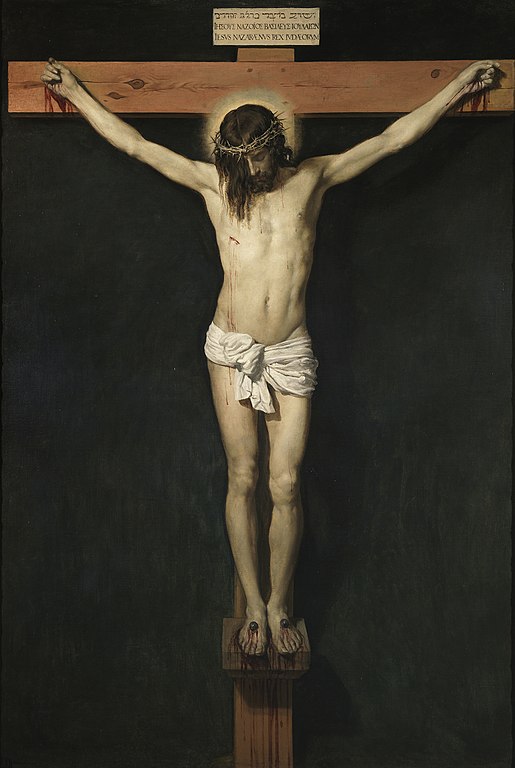« March 2019 | Main | May 2019 »
April 2019 Archives
April 4, 2019
The denial of reality must be totalitarian
I was recently asked in an interview, "What's Wrong With the World?" based upon the name of this blog. I answered that the denial of reality is what's wrong with the world. One could argue that the root of all sin is the denial of reality of some kind or other.
The serpent says to the woman, "Thou shalt not surely die." The woman decides that eating the fruit is good for her and desirable to make one wise, so she does.
In our own day, the very ones who talk of Christianity as "anti-science" deny the humanity of the unborn child in order to kill him. And they order us to say that a man is a woman and that a woman is a man. And they silence any dissent.
The denial of fundamental and obvious reality must be totalitarian, for if it is not, someone brave child will come along and say the obvious. Little whispers of truth will get out. And we can't have that.
Canada has not had free speech for a long time, but the latest outrage on this front is so striking that it gets the attention even of those jaded by such things. Bill Whatcott in Canada has been fined $55k for passing out flyers referring to a male political candidate as a male. It hurt "her" feelings, you see. And the tribunal said that truth is no defense. He refused to refer to the man as "she" during his kangaroo trial, which is part of what racked up the fines. He's been ordered to pay interest in the meanwhile until he gets together enough money to pay the fines. He says he's going to keep speaking out and that he isn't going to pay the fines. Whatcott has guts.
Continue reading "The denial of reality must be totalitarian" »
April 16, 2019
The saved and the lost
This morning there are reports listing relics and works of art known to have been saved or lost, and those whose fate is unknown, from the fire in Notre Dame Cathedral yesterday.
Astonishingly, the three great and ancient stained glass rose windows appear to have survived the fire, despite the collapse of the roof.
The name of Jean-Marc Fournier should be widely known and praised. The same report states that the priest helped the firemen to save relics and works of art and also the consecrated Host.
April 19, 2019
The Mental Sufferings of Our Lord

Strictly speaking, the text excerpted below finds its source in meditations upon certain events commemorated yesterday, Holy or Maundy Thursday: the latter a title strange to many ears, said to be a loose derivation of the Latin for “command.” Among many other reasons, this Thursday is holy because on it Christ gave his disciples his own lapidary summary of the Christian call to service: “love one another, as I have loved you.”
Having delivered this new commandment, the Nazarene in due course set aside the righteous almighty command that was by nature His from all eternity, and took up instead obedience “to the point of death, even death on the cross.”
Jesus Christ’s obedience commands our sustained attention on Good Friday. A renowned sermon by John Henry Newman, portions of which follow, may supply aids for sustaining that attention, especially in this distracted age when even the eyes of the faithful, and even on this most sacred of days, drift off in pursuit of fleeting things. Instead, I invite readers to secure 30 minutes of quiet, in order to consider, by means of Cardinal Newman’s powerful words, such imperishable things as “The Mental Sufferings of Our Lord in His Passion”:
+ + + + +
Every passage in the history of our Lord and Saviour is of unfathomable depth, and affords inexhaustible matter of contemplation. All that concerns Him is infinite, and what we first discern is but the surface of that which begins and ends in eternity. It would be presumptuous for any one short of saints and doctors to attempt to comment on His words and deeds, except in the way of meditation; but meditation and mental prayer are so much a duty in all who wish to cherish true faith and love towards Him, that it may be allowed us, my brethren, under the guidance of holy men who have gone before us, to dwell and enlarge upon what otherwise would more fitly be adored than scrutinised. And certain times of the year, this especially, call upon us to consider, as closely and minutely as we can, even the more sacred portions of the Gospel history.
[. . .]
You know, my brethren, that our Lord and Saviour, though He was God, was also perfect man; and hence He had not only a body, but a soul likewise, such as ours, though pure from all stain of evil. He did not take a body without a soul, God forbid! for that would not have been to become man. How would He have sanctified our nature by taking a nature which was not ours? Man without a soul is on a level with the beasts of the field; but our Lord came to save a race capable of praising and obeying Him, possessed of immortality, though that immortality had lost its promised blessedness. Man was created in the image of God, and that image is in his soul; when then his Maker, by an unspeakable condescension, came in his nature, He took on Himself a soul in order to take on Him a body; He took on Him a soul as the means of His union with a body; He took on Him in the first place the soul, then the body of man, both at once, but in this order, the soul and the body; He Himself created the soul which He took on Himself, while He took His body from the flesh of the Blessed Virgin, His Mother. Thus He became perfect man with body and soul; and as He took on Him a body of flesh and nerves, which admitted of wounds and death, and was capable of suffering, so did He take a soul, too, which was susceptible of that suffering, and moreover was susceptible of the pain and sorrow which are proper to a human soul; and, as His atoning passion was undergone in the body, so it was undergone in the soul also.
April 21, 2019
Easter 2019: Some Personal Reflections

As we sat in the sanctuary on Passion Sunday, my daughter of seven asked me again what was the meaning of all the purple shrouds about the altar. Why would we cover everything that was most beautiful? "What am I supposed to look at?" It was one of those penetrating questions children ask, simple in its innocence but hard to answer, when you come to the point. I stumbled through a quick explanation that her face told me was not very helpful. It was something both too complicated and too pat, about remembering the time Jesus lay in the tomb, and the importance of faithful prayer.
Nothing else came to me until she started fidgeting, as she always does, with her little pearl-colored mantilla. Already that morning she had asked, why should she wear it? I had replied that we always veil the things that are truly sacred, and reminded her of the tabernacle. Again, this had not seemed to satisfy, but it did inspire me to consider more deeply the significance of the season at hand.
